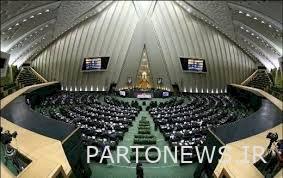Archeology is not about digging for precious things

The most important objection of this plan is the irreparable damage to the territorial identity of the country through unprincipled and unscientific excavations. The project allows a large number of non-specialists to unscientifically excavate the country’s archeological sites in search of what is called a “treasure” and to find archaeological evidence at the site, which only an educated and experienced archaeologist can find. Observe and document slowly, destroy forever. The word “treasure” in this plan is a void of history and culture. “Treasure” is a word that circulates among ordinary people in society and based on their misconceptions, while, for the archaeologist, “treasure” is the same information that is extracted from ancient materials and deposits after using various other scientific disciplines. . Information such as the daily lives of ancient peoples, their economic livelihoods, the organization of human societies, economic relations, environmental challenges, political fluctuations, and dozens of other things can only be obtained through the experience of meticulous analysis of ancient deposits and seemingly simple findings and evidence.
The plan is to reduce the archeological field to excavation to find valuable objects and “treasure”. Reading the aforementioned plan, unfortunately, it is easy to see that the esteemed producers did not use scientific and experienced archaeologists. Archeology is by no means a “treasure” to find precious objects, or as it is stated in this project, but an archaeologist, by scientifically and very carefully exploring ancient deposits that lasts for weeks, seeks all the evidence, large and small, that is thousands of years old. Get the hidden soil and document it carefully. The archaeologist’s goal is not to find precious objects, but to reconstruct the material and spiritual past of man based on all kinds of material evidence from scientific and time-consuming excavations. It takes at least a month for an archaeologist and his crew to explore a pit that an unauthorized digger creates in the archaeological site in the wee hours of midnight and destroys valuable archaeological evidence, as an archaeologist excavates an archaeological site without exaggeration. It is like a human being being operated on by a surgeon; It is delicate, precise, time consuming and complex.
Today, archeology is not a science that can unravel the mysteries of the past by itself, but from a variety of disciplines such as physics, chemistry, zoology, botany, pollen, geology, genetics, pathology, parasitology, and dozens of other disciplines to unravel the mysteries of the various documents. Archeology helps. Reducing the knowledge of archeology to “digging for precious things and treasure” for a country that is home to one of the oldest civilizations in the world and throughout history is one of the most noble powers of the East and an art for this land and its people.
Unfortunately, it must be said that the creators of this plan did not have a correct understanding of the nature of the “ancient site” and its contents. Many archeological sites are nothing but fragments of pottery, fragments of animal bones consumed by the people of that area, remnants of stoves and ovens and charred plant particles, small mud and stone objects such as sarduks and stone chips, and architectural remains. These findings are “worthless” for ordinary people, but they are exactly what the archaeologist is looking for. That is why the archaeologist spends days and weeks slowly and carefully digging into the ancient soil with the tip of his small pickaxe and shovel so that no information is lost.
It is clear that if this plan is implemented, the diggers who are supposed to spend only “short periods” to explore. All these valuable ancient documents are lost, the documents that form the territorial identity of this country.
In today’s world, “cultural identity” plays a very important role in the national cohesion of nations, and many countries make every effort to properly research any of their cultural heritage and introduce it to the world. In this regard, archaeological research is one of the main pillars of the consistency and development of cultural identity. Some countries in the region have gone so far in pursuit of this goal that they have even confiscated some material and human cultural elements of our country and consider them as their own and not related to the vast cultural area of Greater Iran. In such circumstances, the esteemed members of the Islamic Consultative Assembly are expected to abandon the aforementioned plan, in order to preserve and preserve cultural heritage, to impose stricter laws on illegal excavations and the sale and purchase of antiquities, which is one of the effective solutions in Reducing such activities is illegal.
The Cultural Heritage and Tourism Research Institute is ready to hold specialized meetings with esteemed members of the Islamic Consultative Assembly in order to eliminate misunderstandings on the one hand and to clarify the importance of archaeological and cultural heritage research on the other. It is hoped that the outcome of these meetings will be an effort to legislate effectively to preserve the country’s cultural heritage.

